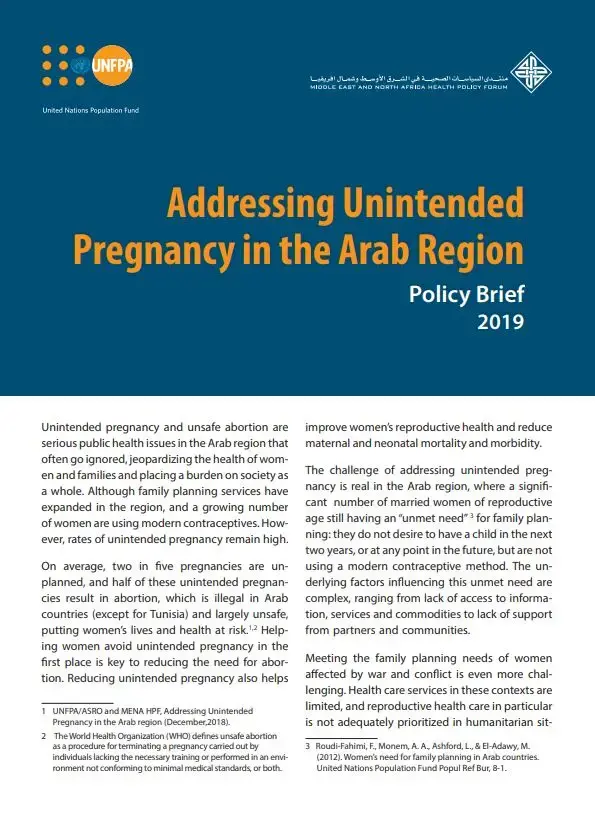Unintended pregnancy and unsafe abortion are serious public health issues in the Arab region that often go ignored, jeopardizing the health of women and families and placing a burden on society as a whole. Although family planning services have expanded in the region, and a growing number of women are using modern contraceptives. However, rates of unintended pregnancy remain high. On average, two in five pregnancies are unplanned, and half of these unintended pregnancies result in abortion, which is illegal in Arab countries (except for Tunisia) and largely unsafe, putting women’s lives and health at risk.
Helping women avoid unintended pregnancy in the first place is key to reducing the need for abortion. Reducing unintended pregnancy also helps improve women’s reproductive health and reduce maternal and neonatal mortality and morbidity.
The challenge of addressing unintended pregnancy is real in the Arab region, where a significant number of married women of reproductive age still having an “unmet need” for family planning:they do not desire to have a child in the next two years, or at any point in the future, but are not using a modern contraceptive method. The underlying factors influencing this unmet need are complex, ranging from lack of access to information, services and commodities to lack of support from partners and communities.


